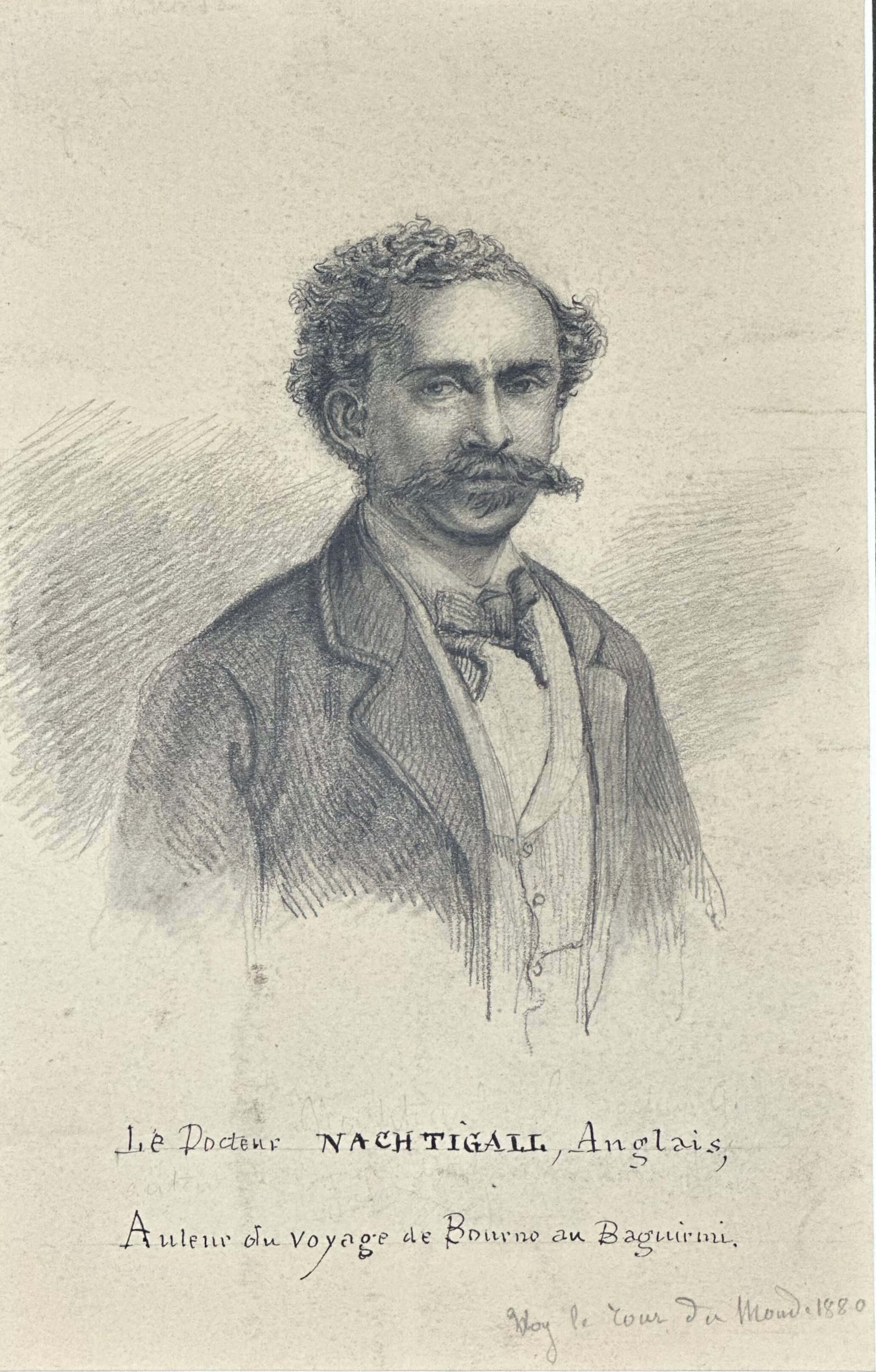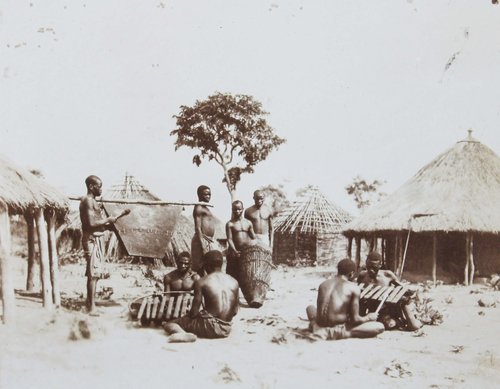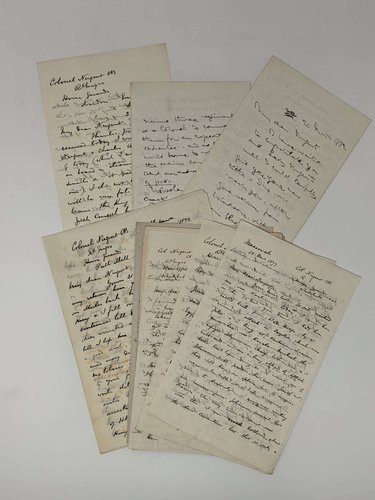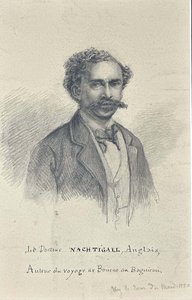
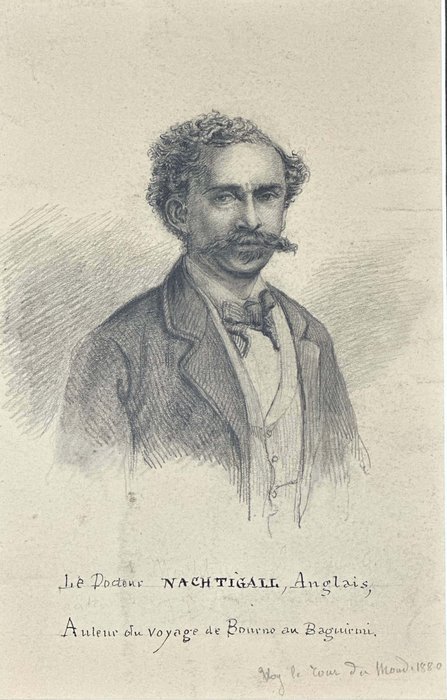
#MC54
Ca. 1880
Pencil on paper, ca. 22x14 cm (8 ½ x 5 ½ in). With ink caption on the lower margin “Le Docteur Nachtigal, Anglais, Auteur de voyage de Bourno au Baguirmi”. Recently matted, near fine drawing.
Well executed pencil portrait of Gustav Nachtigal (1834-1885), a German Africa explorer. The same portrait was published in the French edition of his travel account, “Voyage du Bornou au Baguirmi” (Paris, 1880).
“Gustav Nachtigal was a German explorer of Central and West Africa. He is further known as the German Empire's consul-general for Tunisia and Commissioner for West Africa. His mission as commissioner resulted in Togoland and Kamerun becoming the first colonies of a German colonial empire. The Gustav-Nachtigal-Medal, awarded by the Berlin Geographical Society, is named after him.
Commissioned by King Wilhelm I of Prussia to carry gifts to Umar of Borno, sheik of the Bornu Empire, in acknowledgment of kindness shown to German travelers, he set out in 1869 from Ottoman Tripoli and succeeded after a two years journey in accomplishing his mission. During this period he visited Tibesti and Borku, regions of the central Sahara not previously known to Europeans.
From Bornu he traveled to Baguirmi, an independent state to the southeast of Bornu. From there he proceeded to Wadai (a powerful Muslim kingdom to the northeast of Baguirmi) and to Kordofan (a former province of central Sudan). Nachtigal emerged from darkest Africa at Khartoum (then an Egyptian outpost, today the capital of Sudan) in the winter of 1874, after having been given up for lost. His journey, graphically described in his Sahara and Sudan, placed him in the top ranking of discoverers.
Gustav Nachtigal is regarded as the other great German explorer of Africa, in company with Heinrich Barth. Like Barth, Nachtigal was primarily interested in ethnography, and additionally in tropical medicine. His works stand out because of their wealth of details and above all because of his unbiased views of Africans. In contrast to most contemporary explorers, Nachtigal did not hold to the alleged inferiority of Africans; his convictions are clearly reflected in his descriptions and choice of words” (Wikipedia).

